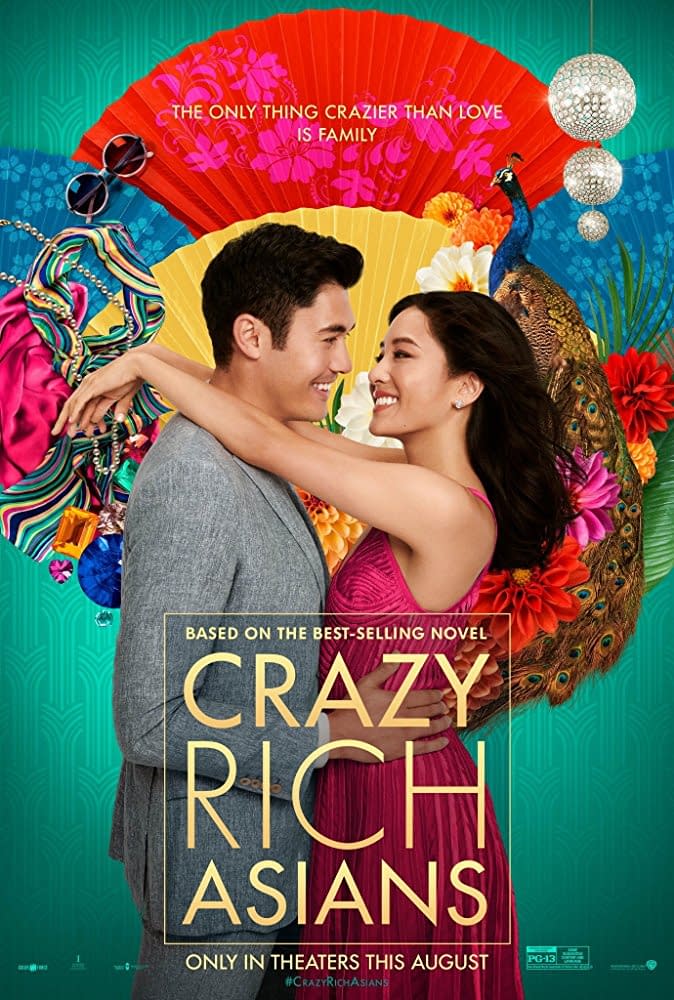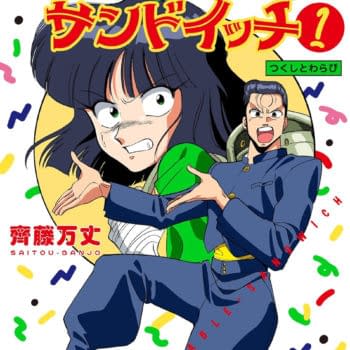Posted in: Movies, Warner Bros | Tagged: Crazy Rich Asians, film, Warner Bros
To Nobody's Surprise, Crazy Rich Asians Bombs in China
This past weekend, Crazy Rich Asians capped off its months as a cultural and social phenomenon and box office hit in America… by bombing massively in China.
Where the movie made $174 million (compared to its $30 million production budget) over its theatrical run in the US, Deadline reported that only made around $1.2 million in its opening weekend in China.
In cineplexes in America, movies that underearn opening weekend usually get a week or two to run before getting replaced on the next weekend. Not so in China where a movie that bombed on its opening Friday and Saturday could disappear from screens by Monday.
There are many reasons Crazy Rich Asians bombed in China. Its China release date was delayed for months after it opened in the rest of the world, so the buzz and momentum already died down by the time it opened in China. Anyone in China who really wanted to see it already pirated it months ago.
Mainland Chinese viewers were resoundingly unimpressed by the movie, posting on social media that the movie trafficked in Western stereotypes of Asians, the opposite of stereotypes of poor Asians who work as waiters and coolies who couldn't speak good English.
Variety even translated some posts from Mainland Chinese viewers on the Chinese review platform Douban: "The plot is passable, the quality of the production is also fine, but I still wanted to vomit a bit."
"So Chinese people in the eyes of Europeans and Americans are just about clans, extravagant snobbery, a blind sense of superiority, and stubbornly clinging to outdated rules and ideas?"

To non-American Chinese audiences, the movie didn't feature characters that acted Chinese. To be fair, I could argue that the characters in the movie are Singaporean Chinese, who have different nuances from Mainland, Hong Kong, and Taiwan Chinese, but that would be a long discussion. Constance Wu's main character Rachel Chu was very much an American-Chinese who wouldn't behave or think the same way as Mainland Chinese. She is the point-of-view character whose surprise and bewilderment reflects an American viewer's.
Before it opened in China, there were two places where Crazy Rich Asians didn't do well: Hong Kong where they shrugged it off as nothing new, and Japan where nobody related to the characters or story at all. It was a huge bomb in Japan.
To me, this proves once and for all that the movie is only truly meaningful to Asian-Americans, hungry for representation in movies and TV for decades. If you followed Twitter during the first three weeks of the movie's opening, you'll find thousands of Asian-Americans, not just Chinese but Japanese, Korean, Vietnamese, and so on, all flocking to the movie and celebrating it as a validation of their presence in a mainstream Hollywood movie.
For China, this movie is weak sauce compared to the hundreds of movies in every genre they already make and see there every year. They don't feel they're underrepresented since they're the majority there. They have their fair share of romantic comedies that don't need to deal with insecurities about their cultural identity. And they certainly don't need a movie to show that they can be rich and glamourous multimillionaires either, they already have their own.
In fact, as a country that claims a socialist outlook at its core, it views massive wealth with deep distrust, even if there are plenty of mega-rich tycoons there now ever since the country opened itself up to the stock market and expansive capitalist ventures. The Chinese government currently has a major anti-corruption stance and gone after movie stars and studios for tax evasion because they're trying to stabilize the economy. Fan Bing Bing's arrest, disappearance, and reemergence this year to confess to tax evasion is a sign that the government does not mess around. Just about every celebrity and production company is under scrutiny for tax evasion and facing retroactive fines. There were rumours that Crazy Rich Asians' China release date was held back because of the anti-corruption push and the censors objected to the movie's celebration of decadent wealth.
Just this summer, at the same time Crazy Rich Asians was playing in America, China released Hello, Mr. Billionaire, a Chinese take on Brewster's Millions, a comedy about a debt-ridden man given a billion dollars that he has to get rid of in 30 days before he can get $30 billion, only to find all schemes to blow the money backfire and earn him even more money. That movie was a huge hit in China. It pushes the lesson that a person having too much money is a terrible thing. Crazy Rich Asians, on the other hand, carried an air of envy at the fabulous wealth of the families Rachel Chu meets in Singapore. Hello, Mr. Billionaire made $367 million at the box office and is the biggest hit in China this year.
At the end of the day, Crazy Rich Asians isn't about Chinese people at all. It's about Asian-Americans' identity crisis and the insecurity they feel when they encounter Asians in their native cultures and how native Asians might look down on them for not being "Asian enough". That's why it's only resonant with Asian-Americans.
Crazy Rich Asians' box office failure in China is the theme writ large: the movie is Rachel Chu meeting the disapproving and unimpressed Eleanor Young, which is China.
















